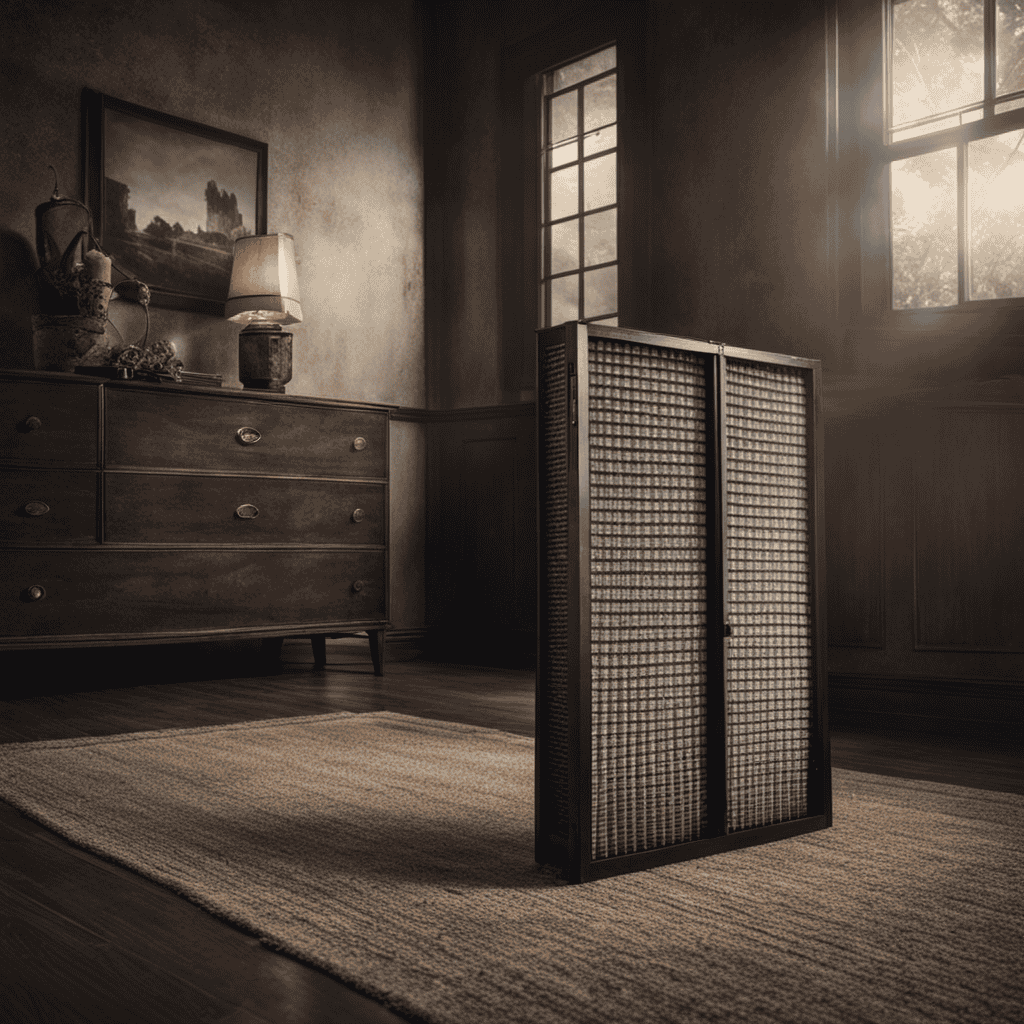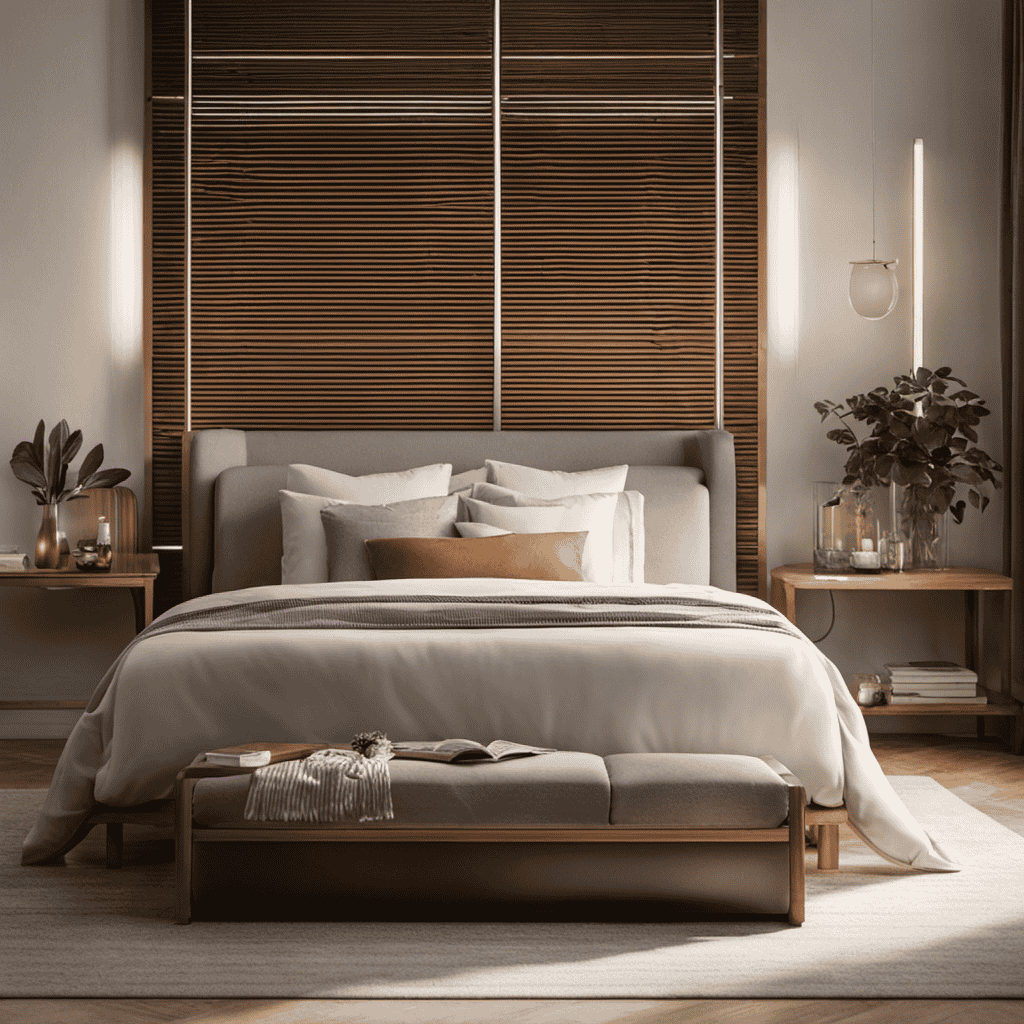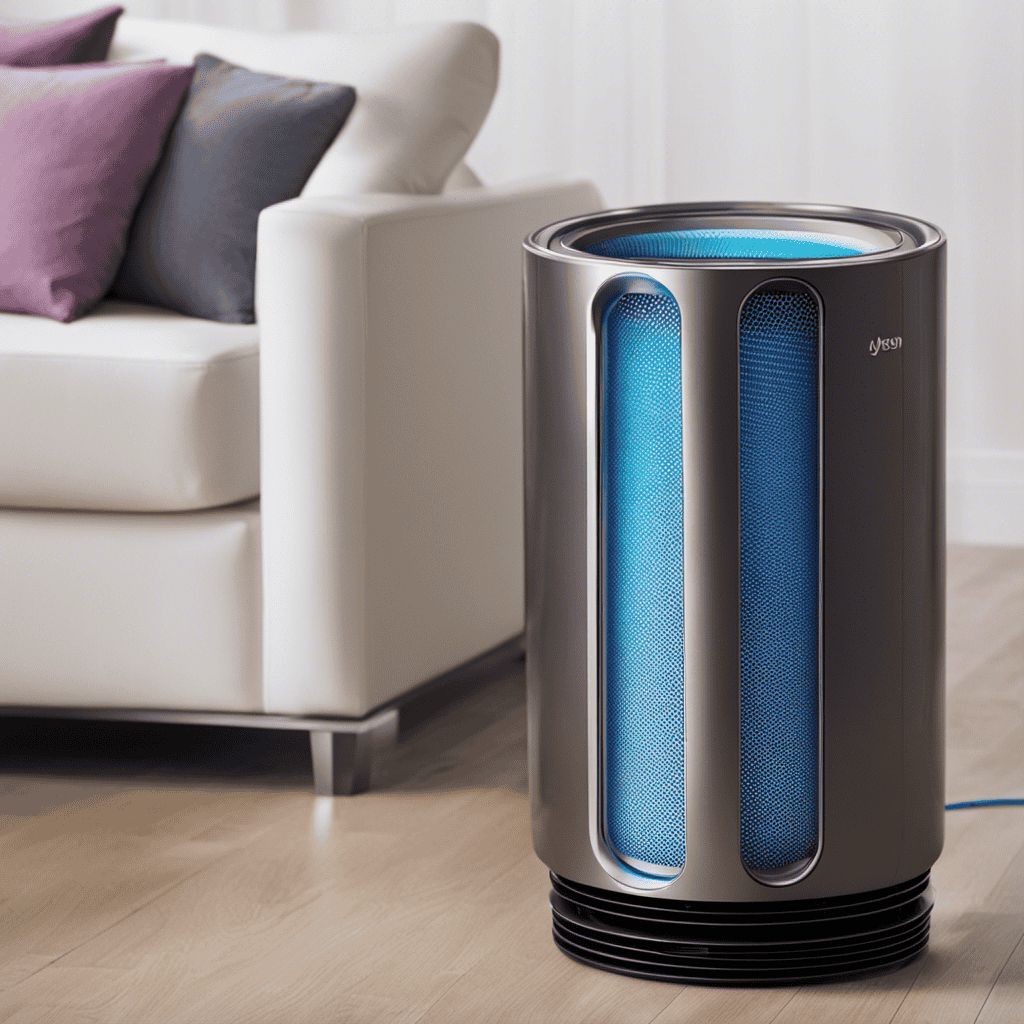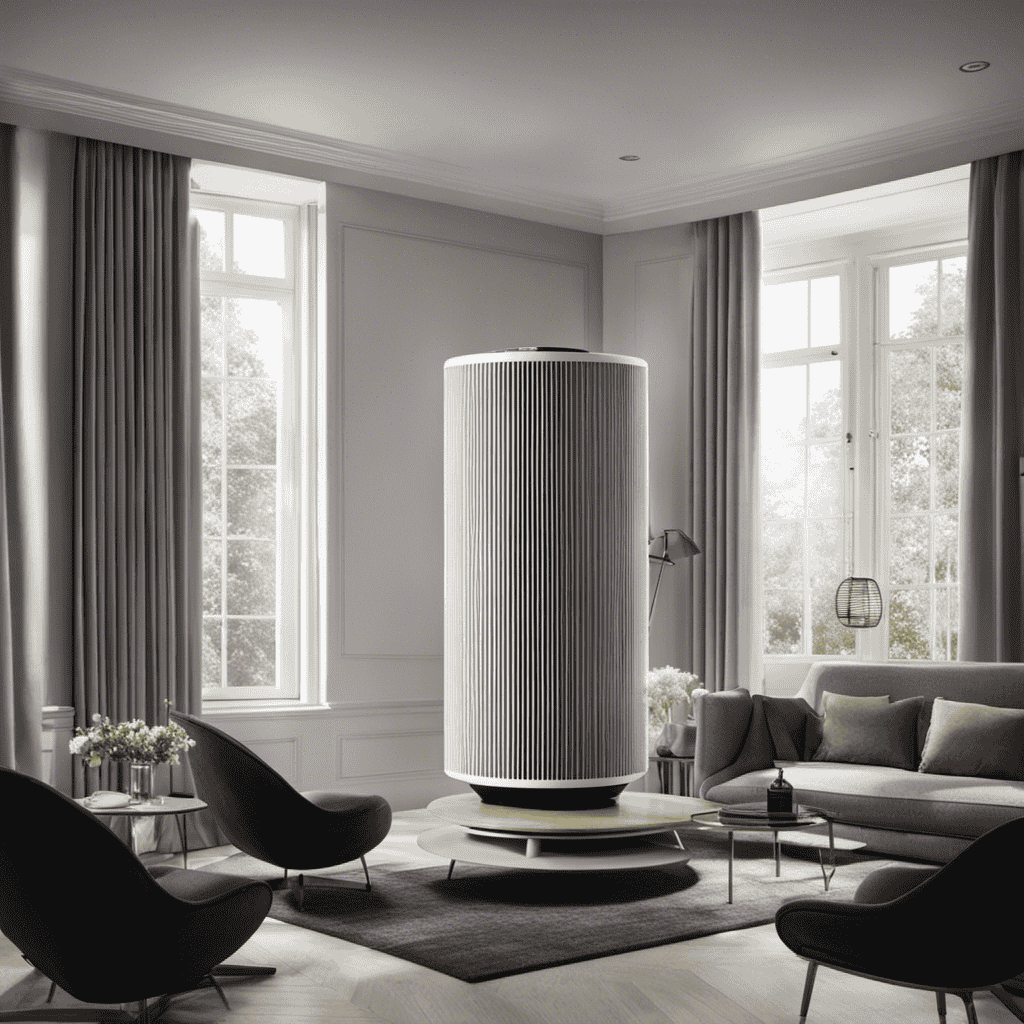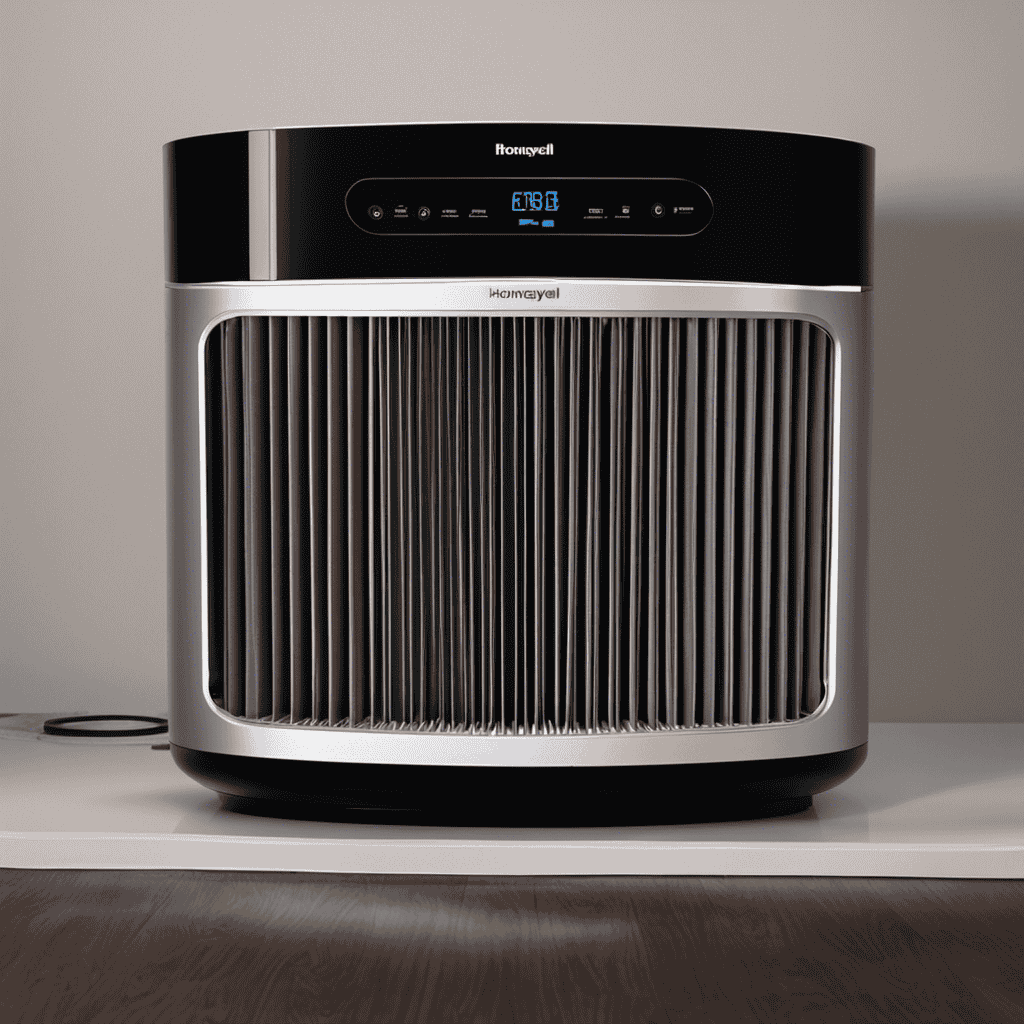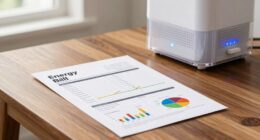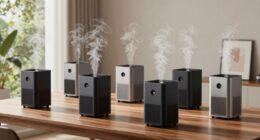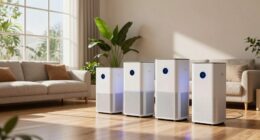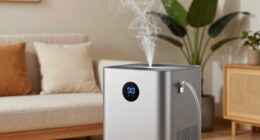Sitting in my polluted room, I find myself pondering over when it’s time to change the air filters in my purifier. This curiosity has led me to investigate the aspects that influence the lifespan of air filters in areas with pollution and to look into the suggested intervals for their replacement.
In this article, we will analyze the signs that indicate it’s time to replace air filters and discuss strategies for extending their lifespan. Join me as we uncover the importance of regular air filter replacement in contaminated spaces.
Key Takeaways
- Efficiency of the filter affects lifespan
- Air quality impacts filter lifespan
- Size of the room and air circulation affect filter replacement frequency
- Regular replacement improves indoor air quality
Factors Affecting Air Filter Lifespan in Contaminated Rooms
There are several factors that can affect the lifespan of air filters in contaminated rooms. One of the key factors is the efficiency of the filter itself. Filters with higher efficiency are better equipped to capture and remove contaminants from the air, which can prolong their lifespan.
Additionally, the impact of air quality on the filter lifespan is crucial. If the air in the contaminated room contains high levels of pollutants, such as dust, allergens, or smoke, the filter will have to work harder and may become clogged more quickly.
The frequency of filter replacement will also depend on the size of the room and the amount of air circulation. Regular maintenance, including cleaning and replacing filters when necessary, is essential to ensure optimal filter lifespan and maintain clean and healthy indoor air quality.
Recommended Timeframes for Air Filter Replacement in Polluted Environments
In polluted environments, it’s recommended to replace air filters regularly to ensure effective purification. The frequency of air filter replacement depends on various factors, including the level of pollution and the type of air filter used.
Research suggests that in highly contaminated rooms, air filters should be replaced every three months. However, in moderately polluted environments, replacement every six months may suffice. These recommended timeframes are based on studies that have shown the decline in air filter efficiency over time.
Regular replacement of air filters is crucial to maintain optimal air quality and prevent the accumulation of harmful pollutants. By adhering to these recommended timeframes, we can ensure that our air purifiers continue to effectively remove contaminants and provide clean and healthy indoor air.
Now, let’s explore the signs that indicate it’s time to replace air filters in a contaminated room.
Signs That Indicate It’s Time to Replace Air Filters in a Contaminated Room
One of the telltale signs it’s time to swap out your air filters in a polluted space is when you start noticing a decrease in air quality. As an individual concerned about the benefits of air purification, it is essential to understand the common contaminants that can be found in indoor air.
Here are three key indicators that it’s time to replace your air filters:
-
Visible accumulation of dust and debris: If you observe a buildup of dust and particles on the surface of your air filter, it indicates that the filter is no longer effectively capturing pollutants.
-
Unpleasant odors: Foul smells in your indoor environment can be a sign that the air filters are saturated with contaminants and need to be replaced.
-
Allergy symptoms worsen: If you or your family members experience an increase in allergy symptoms such as coughing, sneezing, or congestion, it could mean that the air filters are not adequately removing allergens from the air.
Extending the Lifespan of Air Filters in a Contaminated Environment
To make your air filters last longer in a polluted environment, you can regularly clean and maintain them to ensure optimal performance.
In polluted areas, it is important to take extra measures to prolong the lifespan of your air filters. Here are some cost-effective tips for maintaining air filters in contaminated rooms.
Firstly, vacuum the surface of the filter regularly to remove dust and debris. This will prevent clogging and improve airflow.
Secondly, consider using a pre-filter to trap larger particles before they reach the main filter. This will reduce the workload on the main filter and extend its lifespan.
Lastly, keep the surrounding area clean and dust-free to minimize the amount of contaminants entering the air filter.
Importance of Regular Air Filter Replacement in Contaminated Spaces
Regularly replacing your air filters is crucial in spaces with high levels of contamination. Failure to do so can result in reduced air quality and potential health risks. Here are three reasons why regularly replacing your air filters is important:
-
Improved Indoor Air Quality: HEPA filters, which are known for their high efficiency in removing airborne particles, can effectively trap common contaminants such as dust, pollen, pet dander, and mold spores. By replacing your air filters regularly, you ensure that these pollutants are continuously removed from your indoor environment, leading to cleaner and healthier air.
-
Enhanced Filtration Efficiency: Over time, air filters can become clogged with trapped contaminants, causing them to lose their effectiveness. By regularly replacing your filters, you maintain optimal filtration efficiency, ensuring that the air purifier can effectively capture and remove pollutants.
-
Prolonged Lifespan of the Air Purifier: Regular filter replacement prevents the buildup of debris and prolongs the lifespan of your air purifier. By keeping the air filters clean and functioning properly, you can maximize the performance and longevity of your device.
Frequently Asked Questions
Are There Any Specific Air Purifiers That Are Recommended for Use in Contaminated Rooms?
There are air purifiers for industrial use that are recommended for contaminated rooms. Using HEPA filters in these purifiers provides benefits such as efficient removal of contaminants and improved air quality.
Can a Contaminated Room Impact the Lifespan of an Air Filter?
Living in a contaminated room can significantly diminish the efficacy of air filters, reducing their lifespan. To mitigate this, implementing strategies to minimize contaminants is crucial in prolonging the air filter’s performance.
Are There Any DIY Methods to Clean or Extend the Lifespan of Air Filters in Contaminated Rooms?
In contaminated rooms, DIY methods can help clean air filters and extend their lifespan. Regular air filter replacement is important for maintaining clean air.
How Often Should I Clean the Exterior of My Air Purifier in a Contaminated Room?
To properly clean the exterior of an air purifier in a contaminated room, wipe it down with a damp cloth. Regular cleaning helps maintain the effectiveness of air filters. Following these tips ensures optimal performance and cleaner air.
Are There Any Health Risks Associated With Not Replacing Air Filters in a Contaminated Room on Time?
Not replacing air filters in a contaminated room on time can pose serious health risks. The accumulation of pollutants and contaminants can reduce the effectiveness of the purifier, leading to poor air quality and potential respiratory issues.
Conclusion
In conclusion, maintaining clean and healthy air in contaminated rooms requires diligent attention to air filter replacement. By understanding the factors that affect filter lifespan and following recommended timeframes, individuals can ensure the effectiveness of their purifiers.
Signs such as decreased airflow or foul odors indicate the need for replacement. However, extending the lifespan of filters through regular maintenance is crucial.
Just as a knight protects their kingdom from invaders, air filters shield us from harmful pollutants. So let us be vigilant in our quest for clean air.
